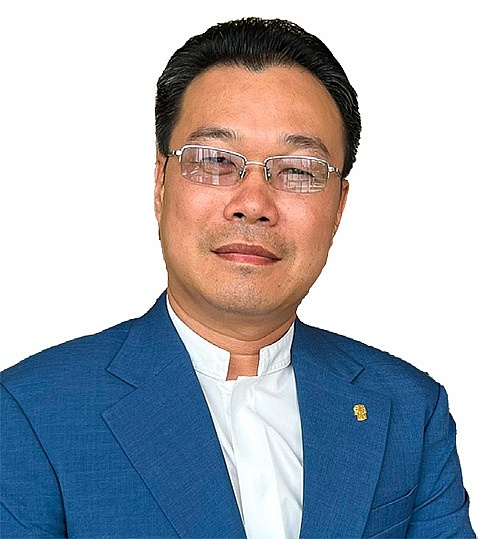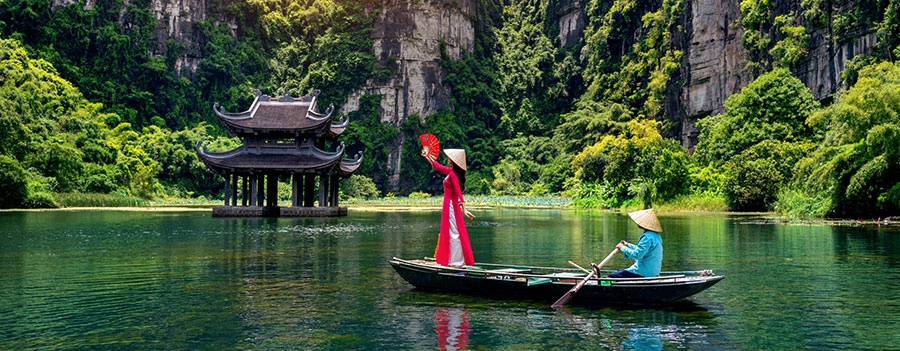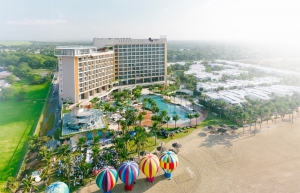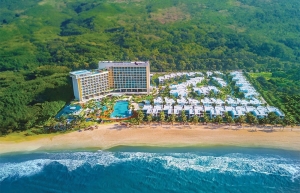Promoting Vietnamese tourism globally is a must
 |
| Tran Tuan Vinh, hotel manager Angsana & Dhawa Ho Tram |
The tourism, hospitality, and the food and beverages (F&B) market are inseparable. People will choose the destination first, before choosing the hotel to stay in and restaurant to eat. Without tourists, the hospitality and F&B market are nothing.
On the other hand, without high-quality hotels or cuisine, tourists will come but no return. In 2023, although Vietnam has some restaurants winning Michelin stars, this is not the main factor to drawing in tourists.
Vietnamese cuisine is characterised by fresh ingredients, bold flavours, and a balance of textures. Food plays a significant role in Vietnamese culture, and the country’s street food scene is renowned. Many visitors are drawn to the experience of trying local dishes from street vendors and markets, where they can savour the authentic flavours of Vietnamese cuisine.
Despite all the above, I am not really confident to say there will be any signs of a blooming year for the tourism industry and F&B market until 2025 when the economy is fully resilient. So far, during this harsh period, marketing and promoting tourism and hospitality on a global scale involves a multifaceted approach that includes marketing strategies, infrastructure development, cultural promotion, and more.
Digital Marketing Campaigns
Investing in digital marketing campaigns to showcase Vietnam’s unique attractions, diverse culture, and its delicious cuisine. Leveraging social media platforms, influencers, and online travel agencies to reach a wider audience.
Cultural Experiences
Highlighting and promoting Vietnam’s rich cultural heritage. Developing programmes and events that allow tourists to immerse themselves in local traditions, festivals, and customs.
Infrastructure Development
Investing in infrastructure development, including transport, accommodation, and public facilities. Well-maintained and modern infrastructure can significantly enhance the overall tourist experience.
 |
Sustainable Tourism Practices
Emphasising sustainable tourism practices to engage eco-conscious travellers. This includes promoting responsible tourism, preserving natural habitats, and supporting local communities.
Collaboration with Travel Agencies
Collaborating with international travel agencies to create attractive travel packages and promotions. This can make Vietnam more appealing to potential tourists and travel agents.
Visa Policies
Reviewing and streamlining visa policies to make it easier for tourists to visit Vietnam. Simplifying visa processes can encourage more people to choose Vietnam as their travel destination.
Language Accessibility
Ensuring that tourism-related information, signage, and services are available in multiple languages to cater to a diverse global audience.
 | Angsana & Dhawa Ho Tram gains EarthCheck certification Angsana & Dhawa Ho Tram is the first hospitality project in Southern Vietnam to achieve Silver certification from EarthCheck, the world’s leading consulting and advisory group for sustainable destinations and tourism organisations. |
 | 5-star luxury at Angsana and Dhawa Ho Tram Five months after welcoming its first guests back in June, Angsana and Dhawa Ho Tram has been recognised by the Vietnam National Administration of Tourism, under the Ministry of Culture, Sports and Tourism, as meeting the extremely strict standards for 5-star tourist accommodation. |
 | Angsana and Dhawa Ho Tram: indulge in sanctuary of senses Nestled in a 6-hectare verdant resort enclosed by the charming coastal strip and primeval green curve lines of melaleuca trees, Angsana Ho Tram and Dhawa Ho Tram are two promising 5-star destinations belonging to hotel management giant Banyan Tree. |
What the stars mean:
★ Poor ★ ★ Promising ★★★ Good ★★★★ Very good ★★★★★ Exceptional
Related Contents
Latest News
More News
- Vibrant Vietnamese cuisine fit for global tastes (June 09, 2025 | 10:42)
- Vietnam can be global hot spot in 2025 (January 29, 2025 | 00:38)
- Promoting tourism and hospitality with sustainability (January 28, 2025 | 09:00)
- Vietnam centres on eco-luxury tourism and hospitality (January 28, 2025 | 02:06)
- Growth prospects for Vietnam’s event tourism in 2025 (January 28, 2025 | 01:18)
- Core values drive success at Marriott (January 24, 2025 | 16:00)
- Hoteliers to prioritise eco-luxury (January 04, 2025 | 09:00)
- Vietnam upscale tourism on the rise for 2025 (December 30, 2024 | 12:03)
- Addressing concerns can shape green hospitality (December 04, 2024 | 10:24)
- Vietnam’s sports economy to lead a new era of development (November 06, 2024 | 16:31)

 Tag:
Tag:




















 Mobile Version
Mobile Version